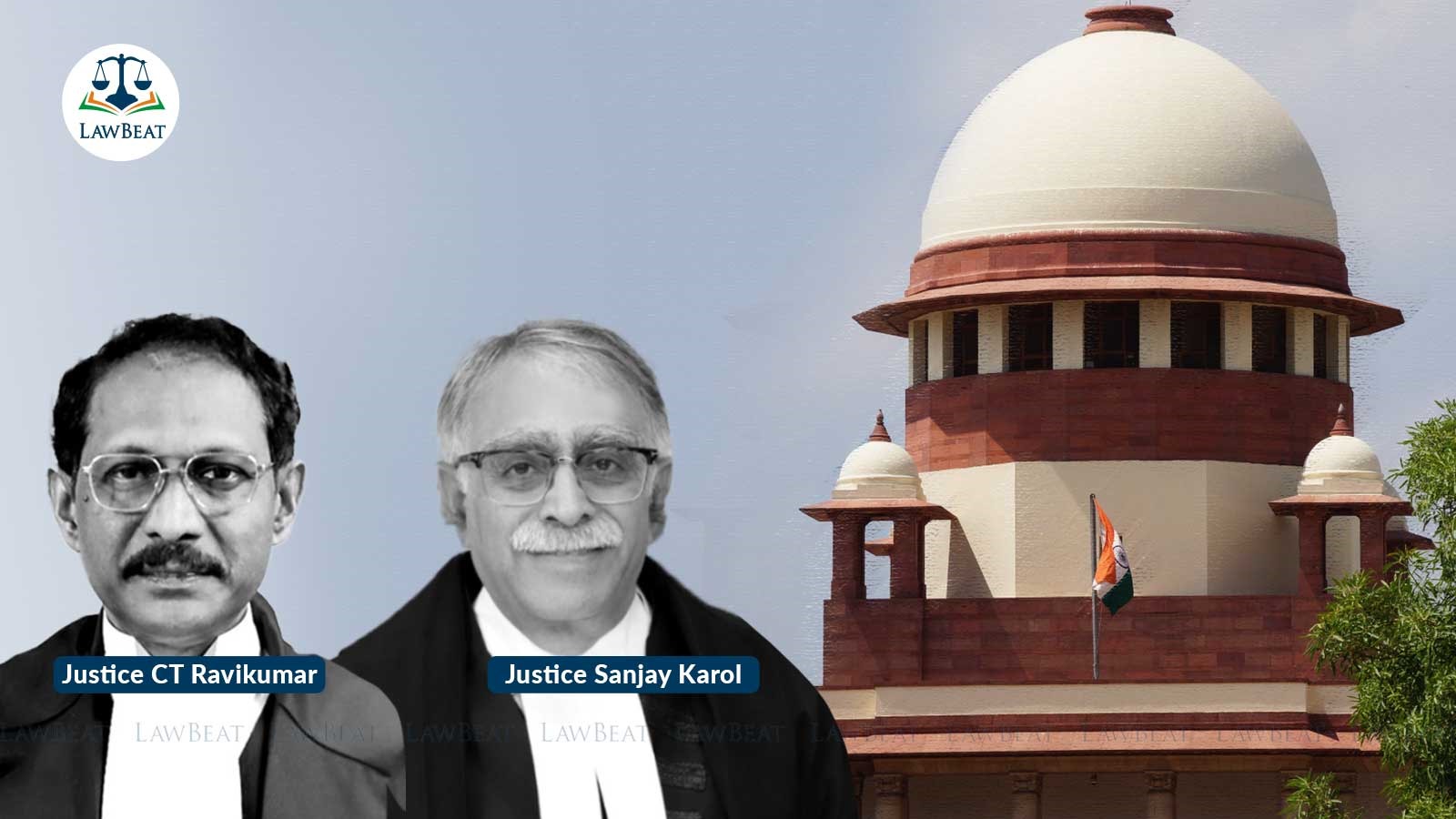Charge Sheets Can't Rely on Bald Assertions; Must Have Substance: SC

In the case at hand, the bench noted that nothing had been brought in the charge sheet upon completion of the investigation to show that the requirements of Section 120-B had been met
The Supreme Court has said that sections put in a charge sheet on the basis of mere bald assertions of connivance without substance and intent cannot lead to prosecution in a case.
The apex court quashed the criminal proceedings against an employee of the Madhya Pradesh State Housing Board for offences related to forgery and cheating committed in connection with a property sought to be registered in the name of a particular person by way of a Power of Attorney.
A bench of Justices C T Ravikumar (since retired) and Sanjay Karol allowed an appeal filed by Dinesh Kumar Mathur against the High Court's judgment of April 28, 2017, which declined to quash the FIR lodged on May 14, 2016 with regard to the transfer of a plot.
The police filed the chargesheet under Sections 419, 420, 467, 468, 471 and 120B r/w 34, Indian Penal Code against five persons, including the appellant. Notably, the complainant also filed a civil suit which was dismissed.
In his submission, the appellant contended that the execution of the sale deed was reasonably connected with his official duty, which was carried out after obtaining a legal opinion from the counsel of the Housing Board.
His counsel argued that since the act carried out by the appellant was connected with his official duty, any such action would have been protected by Sections 82 and 83 of the MP Housing Board Act, 1972, which is akin to Section 197 CrPC.
The appellant further stated that there was no mens rea on his part and that the allegations against him were entirely unsubstantiated by the record. He also claimed that the present criminal complaint had been instituted against him after his superannuation from service, causing grave injury to his reputation and mental well-being.
The court examined whether the appellant, as an employee of the Housing Board, had prima facie involvement in the alleged forgery and cheating committed in connection with the property sought to be registered in the name of a particular person by way of a Power of Attorney.
Having considered the application of Section 197, the bench observed, "We are of the view that the submission of the appellant bears merit and, therefore, deserves to be accepted, for the appellant’s official duty would be in furtherance of the act and, therefore, would be covered by wordings of Section 83 of the Adhiniyam, 1972. There is no inkling in the slightest, apart from alleging connivance to suggest that the appellant had played a role, in dereliction of his duty."
The court also opined that there were further reasons why the High Court appeared to have erred in refusing to quash the subject criminal proceedings.
Referring to Section 420 IPC as described in Vijay Kumar Ghai Vs State of WB (2023), the bench stated, "There is nothing on record to suggest, even prima facie, that any of the ingredients are met in the case of the present appellant. No intent can be hinted to, where the appellant had willfully, with the intent to defraud, acted upon the allegedly forged Power of Attorney".
To establish the offence of cheating in inducing the delivery of property, according to Vijay Kumar Ghai, the following ingredients needed to be proved: (i) The representation made by the person was false. (ii) The accused had prior knowledge that the representation he made was false. (iii) The accused made the false representation with dishonest intention in order to deceive the person to whom it was made. (iv) The act where the accused induced the person to deliver the property or to perform or abstain from any act that the person would not have done otherwise.
In this case, the bench noted that nothing had been brought in the charge sheet upon completion of the investigation to show that the requirements of Section 120-B had been met or that the appellant had any knowledge about the Power of Attorney being forged.
Referring to Bilal Hajar Vs State (2019), the bench stated that, to constitute a conspiracy, the meeting of minds of two or more persons to commit an illegal act or an act by illegal means was essential. In other words, it was a sine qua non for invoking the plea of conspiracy against the accused. However, it was not necessary for all conspirators to know every detail of the conspiracy or to prove their active part/role in such a meeting.
The court concluded that sections included in a chargesheet could not be based on bald assertions of connivance and required substance, which was entirely lacking in the present case.
"If the intent is on the face of it is absent qua one of the offences in the same transaction, it is absent in respect of the other offence as well, viz, Section 467, 468," the bench said.
Relying on the law laid down in State of Haryana Vs Bhajan Lal (1992), the bench held that no intention whatsoever could be attributed to the present appellant, and in the absence of any intention attributable to him, no criminal offence could be made out.
"Further, the FIR and other materials are unable to disclose any cognizable offence, and therefore, would fall into the first and second criterion discussed in the landmark judgment," the bench stated, setting aside the High Court's judgment and closing all proceedings subsequent to the FIR.
Case Title: Dinesh Kumar Mathur Vs State of MP & Anr
